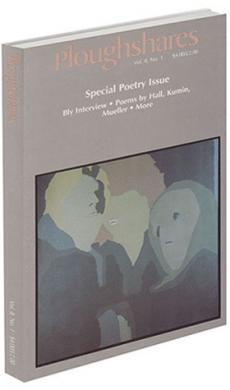rev. of Animals by Alice Mattison
For sheer corporeal presence in verse, it would be hard to match Alice Mattison. Her best subject is motherhood, including pregnancy (no need to say "
enceinte" in this case). No subject holds more boredom or fascination for us. As Adrienne Rich has noted, we tend either to make too much or too little of it. Our emphasis is always wrong; Mattison's is right. She captures the "otherness" of motherhood ("I pilot myself / out into the street"), its invisibility ("I'm a woman, I don't want / to take up space . . . . Being is embarrassing; I cannot stand it — "), its palpable reality ("This flesh / is the mouthpiece / for something true; / reality speaks / in, among other things, bellies . . . ."), finally its pleasure (breast-feeding, "you feel, for a moment, as though your breasts / have been inflated, and you get that / sweet tension in your throat — as if there's something good / that you can't remember"). She is also frank, and funny, about its ambivalence ("I really don't think I'm interested in children"). Throughout, she writes with appreciation for the
earthiness of physical sensation.
Acquiring a self, however, is more problematic for her. In the family constellation, she most often presents herself as a child, not as an adult with a family of her own. In "The Grownup," she remembers "the year / I moved out of their house. . . . I could have done anything that year — / bought cakes, skipped meals, but even in my new / privacy, I was nondescript." The author of
Animals is apparently in transition from animal to human.
As a consequence, perhaps, her imagination is fluid and surprising. Two of the best poems in the book, "Timber Line Group" and "Singing," involve imaginative transformations of everyday scenes. The former takes off from the natural history museum, the latter from a shopping mall. Mattison's free verse suits the quirky jumps and changes of pace in thinking and imagining and feeling.

